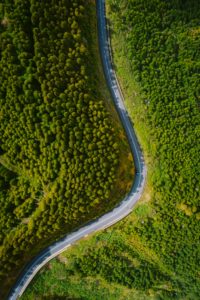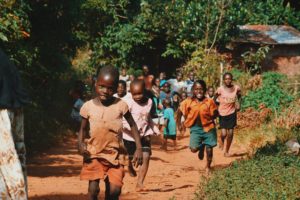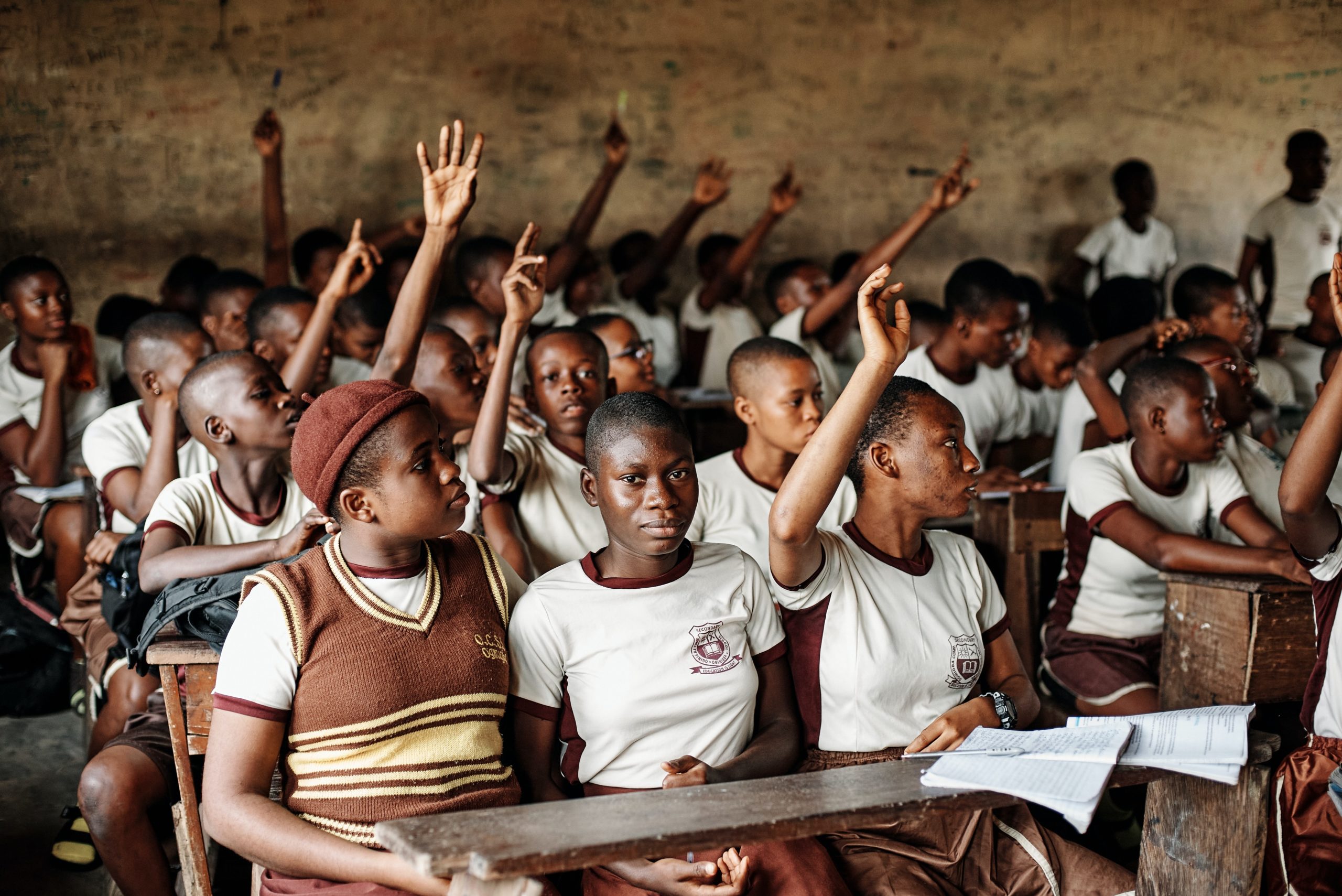About the webinar series
In 2023, the Climate Action Accelerator launched its first collective cycle to offer tailored support to five national NGOs in the Sahel: Alerte Santé in Chad, KEOOGO and SOS Médecins in Burkina Faso, BEFEN in Niger and AMCP-SP in Mali. Unlike the work carried out with international partners, the collaboration with local NGOs does not aim to set quantified emission reduction targets, but rather to develop low-carbon development trajectories, increase their operational resilience and strengthen their capacity for action.
These organisations have developed environmental roadmaps and have launched concrete projects, including the collection of empty Ready-to-Use Therapeutic Food (RUTF) sachets, waste categorisation and management, the implementation of white roofs and solarisation projects, and the development of agroecological practices.
During this series of webinars with NGOs from the first cycle, we shared the lessons learned from the development of the roadmaps and the first projects launched. Since the end of 2024, the Accelerator has embarked on a second collective cycle with eight NGOs in Senegal and Cameroon.
If you would like to join the next collective cycles, now is the time to find out more !
- Roadmaps | 18 September
- RUTF sachets collection | 9 October
- Waste | 16 October
- White roofs & solarisation | 23 October
- Agroecology | 30 October
Webinars
Webinar 1 – Developing a strategy: Roadmaps from five Sahelian NGOs
Webinar 1 – Developing a strategy: Roadmaps from five Sahelian NGOs
The first collective cycle brought together five national NGOs – Alerte Santé, KEOOGO, BEFEN, SOS Médecins Burkina Faso et AMCP-SP. Over a period of 9 to 12 months, this collective cycle aimed to co-develop and implement, with each organisation, an individual roadmap towards sustainable, resilient, and low-carbon development.
In this first webinar of the cycle, we explored the methodology used to develop the roadmaps, their content, and the main lessons learned.
When and where?
📆 Thursday, 18 September 2025 | 10:30 GMT | 12:30 CET
💻 Online on Zoom
🇫🇷 Language: the webinar was conducted in French and translated simultaneously into English via a Zoom plug-in
Speakers: Roadmaps presentations
- Limassou Saleh, Alerte Santé
- Habil Badalo, SOS Médecins
- Harouna Ouedraogo, KEOOGO
- Oumou Touré, AMCP-SP
- Moutari Kolle, BEFEN
Moderators
- Mariama Diop, Africa Programme Officer, Climate Action Accelerator
- Introduction of speakers and moderation of the webinar
- Zaninka Ntagungira, Programme Officer, Climate Action Accelerator
- Introduction on the collective cycle and operational guide
Webinar 2 - Protecting the environment: collection of RUTF sachets
Webinar 2 – Protecting the environment: collection RUTF sachets
Ready-to-use therapeutic foods (RUTFs) are highly effective in treating child malnutrition, but the packaging, which consists of individual, metallised, multi-layer sachets, is often discarded in the environment, generating significant plastic pollution. The systematic collection of empty sachets therefore represents a major improvement as it prevents them from being scattered in the environment.
The PLASTIK project that we co-developed with ALIMA and partner NGOs Alerte Santé, KEOOGO and SOS Médecins, has organised the collection of used RUTF sachets used to treat child malnutrition in Chad and Burkina Faso, preventing 3 tonnes of waste from being released into the environment.
In this webinar, we presented the project and its context, and representatives from the partner organisations discussed in more detail the results and the difficulties encountered during implementation.
When and where?
📆 Thursday, 9 October 2025 | 10:30 GMT | 12:30 CET
💻 Online on Zoom
🇫🇷 Language: the webinar was conducted in French and translated simultaneously into English via a Zoom plug-in
Speakers
- Jérémy Coutelle, Environmental Action Project Manager, ALIMA
- Kevin Igor Nagoude, Logistics Coordinator, Chad, Alerte Santé/ALIMA
- Moussa Traore, Logistics Coordinator Assistant, Burkina Faso, Keoogo/SOS Médecins BF/ALIMA
Moderator
- Pascal Carré, Technical Expert, Climate Action Accelerator
Webinar 3 - Reducing local pollution: Waste characterisation
Webinar 3 – Reducing local pollution: Waste characterisation
Climate Action Accelerator has developed a waste characterisation tool to gain a better understanding of the waste produced by organisations or projects, and then manage it in an appropriate and sustainable manner. This tool has been used by NGO partners in collective cycles as part of the implementation of their environmental roadmap.
The tool developed makes it possible to estimate the quantity and quality of waste through one-off or periodic measurements in the structures, projects or premises supported or used by the organisation. It also allows observations to be made on existing flows and final destinations. Analysis of the results obtained makes it possible to identify the main issues and develop an appropriate ‘Waste Management Plan’.
In this webinar, we presented the tool and two concrete examples of its use by our partners, AMCP-SP in Mali and AGORA in Senegal, in different contexts.
When and where?
📆 Thursday, 16 October 2025 | 10:30 GMT | 12:30 CET
💻 Online on Zoom
🇫🇷 Language: the webinar was conducted in French and translated simultaneously into English via a Zoom plug-in
Speakers
- Oumou Touré, Resource Mobilisation/Grants Specialist, AMCP-SP
- Ababacar Fall, Autonomisation Division Manager, AGORA
- Pascal Carré, Technical Expert, Climate Action Accelerator
Moderator
- Marion Schruoffeneger, SUBA
Webinar 4 - Promoting energy solutions: white roofs and solarisation
Webinar 4 – Promoting energy solutions: white roofs and solarisation
Our partners have identified and implemented two solutions that reduce energy consumption while improving user comfort: white roofs and solarisation.
Painting roofs white reflects solar radiation and thus reduces the temperature inside buildings without the use of air conditioning, while installing photovoltaic solar energy systems reduces fossil fuel consumption and makes the structure energy self-sufficient.
In this webinar, we presented the issue and case studies, and representatives from Alerte Santé and KEOOGO discussed the implementation of these solutions and the difficulties encountered during this experiment.
When and where?
📆 Thursday, 23 October 2025 | 10:30 GMT | 12:30 CET
💻 Online on Zoom
🇫🇷 Language: the webinar was conducted in French and translated simultaneously into English via a Zoom plug-in
Speakers
- Madjitaba Issaka, Technical Advisor, ALIMA
- Kevin Igor Nagoude, Logistics Coordinator, Chad, Alerte Santé/ALIMA
- Harouna Ouédraogo, Protection Officer, KEOOGO
Moderator
- Pascal Carré, Technical Expert, Climate Action Accelerator
Webinar 5 - Health and agriculture: when health NGOs practise agroecology
Webinar 5 – Health and agriculture: when health NGOs practise agroecology
Agroecological practices in healthcare facilities address several challenges at once. In many resource-constrained contexts, these facilities operate in environments where food insecurity, environmental degradation and a lack of green spaces are exacerbating community health issues.
This webinar highlighted two initiatives from the first collective cycle: SOS Médecins Burkina Faso (SOS MBF) and Bien Être de la Femme et de l’Enfant au Niger (BEFEN) have shown how agroecology and reforestation can transform these facilities into places capable of simultaneously addressing environmental challenges, food security and patient well-being. These initiatives offer practical, low-cost, and sustainable solutions that strengthen the climate resilience of facilities and communities.
When and where?
📆 Thursday, 30 October 2025 | 10:30 GMT | 12:30 CET
💻 Online on Zoom
🇫🇷 Language: the webinar was conducted in French and translated simultaneously into English via a Zoom plug-in
Speakers
- Malick Saw, Agroecology Expert
- Habile Badalo, Emergency Medical Response Manager, SOS Médecins BF
- Moutari Kolle, Project Coordinator, BEFEN
Moderator
- Pascal Carré, Technical Expert, Climate Action Accelerator
Resources
-
Our first collective cycle's partners' published roadmaps
Explore them here -
Guide for national organisations
The initial experience of the first cycle has been compiled in a guide for national organisations
Explore it here -
Technical case study - Collection of empty sachets of Ready-to-Use Therapeutic Food (RUTF)
Explore it here -
Solid waste characterisation toolkit
Explore it here -
Solarisation toolkit
Explore it here -
Solution factsheet on white roofs
Explore it here
Featured
Our 5 new African partners – local NGOs in the Sahel
Launch of a new collective cycle in Africa – 8 new NGOs join the Accelerator
Published Roadmaps

Partners on board

Credits
Cover photo: Emmanuel Ikwuegbu/Unsplash
